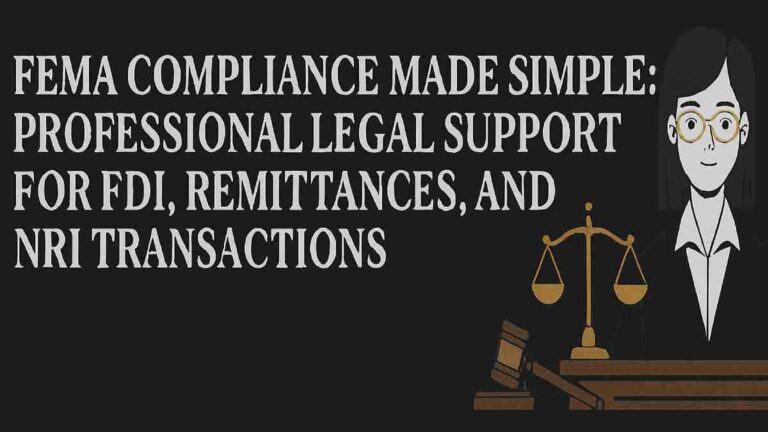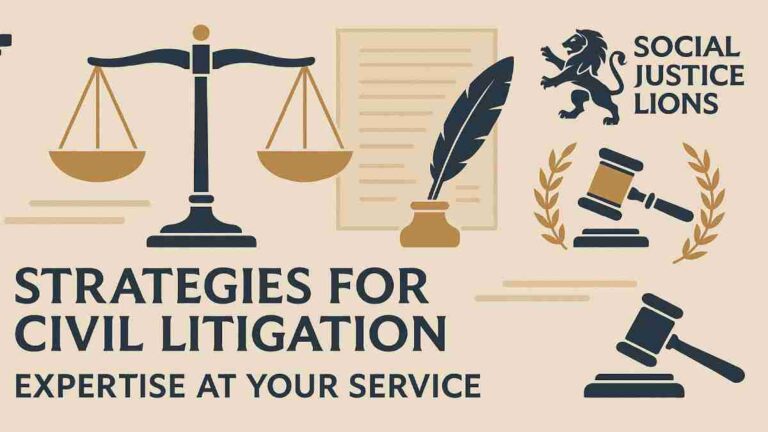Guidance in Real Estate Law: Building Your Future Together
Guidance in Real Estate Law – Real estate law is an essential part of property ownership and development. It governs transactions, agreements, ownership rights, leases, and disputes. Understanding this law is crucial for buyers, sellers, investors, and developers. At Social Justice Lions, we provide expert legal guidance to help clients navigate the complex world of real estate law efficiently.
Guidance in Real Estate Law: Building Your Future Together: Social Justice Lions
Introduction to Real Estate Law
Real estate law covers a wide range of legal issues related to property. These include buying, selling, leasing, zoning, registration, and dispute resolution. The law ensures that property transactions are transparent, fair, and legally valid.
Moreover, real estate law protects the rights of both owners and tenants. It also regulates commercial and residential developments. Legal guidance helps avoid disputes and ensures compliance with statutory requirements.
Property Ownership and Title Verification
The first step in any property transaction is verifying the title. Clear title ensures that the seller has legal ownership and the right to transfer the property. Title verification includes reviewing sale deeds, encumbrance certificates, and property tax receipts.
Lawyers also check for liens, mortgages, or pending litigation on the property. By addressing these issues beforehand, buyers can avoid future disputes. Expert guidance ensures secure and lawful property acquisition.
Sale and Purchase Agreements
A sale agreement outlines the terms and conditions of a property transaction. It includes price, payment schedule, possession date, and responsibilities of both parties.
Drafting a clear and legally binding sale agreement is vital. Lawyers ensure that clauses cover default, breach, and dispute resolution. This prevents misunderstandings and protects the interests of both buyers and sellers.
Lease and Rental Agreements
Lease agreements govern the use of property for a fixed period. Rental agreements define terms for residential or commercial leasing.
Legal experts ensure that agreements comply with local rent control laws and property regulations. They also address security deposits, maintenance obligations, and eviction procedures. Proper documentation safeguards both landlords and tenants.
Real Estate Regulatory Compliance
The Real Estate (Regulation and Development) Act, 2016, or RERA, protects homebuyers and promotes transparency. Developers must register projects with RERA and provide accurate project details.
Lawyers guide developers and buyers to comply with RERA provisions. They ensure that disclosures, approvals, and timelines are legally valid. Compliance reduces legal risks and fosters trust in the property market.
Due Diligence in Property Transactions
Due diligence is a critical step before finalizing property deals. It includes reviewing ownership documents, permits, zoning approvals, and environmental clearances.
Lawyers also examine pending litigation, taxation issues, and encumbrances. Comprehensive due diligence ensures informed decision-making and avoids potential losses. Buyers and investors benefit greatly from professional legal advice.
Construction and Development Agreements
Construction agreements govern building projects between developers and contractors. These agreements specify timelines, quality standards, payment terms, and penalties for delays.
Legal counsel ensures that agreements protect the developer’s and investor’s interests. They also help resolve disputes arising during construction. Clear agreements prevent delays, cost overruns, and legal complications.
Property Dispute Resolution
Property disputes are common in real estate. Disagreements may involve ownership claims, boundary issues, tenancy conflicts, or construction defects.
Courts, arbitration, or mediation are used to resolve disputes. Lawyers help prepare legal notices, file petitions, and represent clients in proceedings. Timely intervention prevents escalation and safeguards property rights.
Mortgages and Financing
Mortgages involve using property as collateral for loans. Legal guidance ensures that mortgage agreements comply with the law and protect both lenders and borrowers.
Lawyers review loan terms, repayment schedules, and foreclosure clauses. This prevents exploitation and secures the financial interests of clients. Understanding mortgage law is essential for real estate investors.
Taxation and Regulatory Obligations
Real estate transactions involve multiple taxes, including stamp duty, registration fees, property tax, and capital gains tax. Legal advisors guide clients on compliance, exemptions, and deductions.
Proper tax planning reduces liability and avoids disputes with authorities. Lawyers also ensure timely filing of documents and payment of statutory dues. Regulatory compliance is crucial for smooth property dealings.
Role of Legal Experts in Real Estate
Navigating real estate law is complex. Lawyers provide guidance on contracts, due diligence, litigation, and regulatory compliance. They also advise on risk management, investment strategies, and dispute resolution.
Experienced legal counsel ensures that property transactions are secure and legally valid. Their support builds confidence for buyers, developers, and investors alike.
Digital Transactions and E-Registrations
With technological advancement, property transactions increasingly rely on digital platforms. E-registration and online property records simplify processes. Lawyers assist clients in navigating these systems, ensuring accuracy and compliance. Digital procedures reduce fraud risks and improve efficiency. Legal expertise remains vital even in online transactions.
Frequently Asked Questions
Real estate law governs the ownership, use, and transfer of property. It includes buying, selling, leasing, mortgages, zoning, and dispute resolution. Legal guidance ensures property transactions are fair and legally valid.
Title verification confirms the legal ownership of a property. It helps identify liens, mortgages, or pending litigation. Verifying the title protects buyers from disputes and ensures secure property acquisition.
RERA promotes transparency in real estate projects. Developers must register projects, provide accurate details, and meet timelines. Buyers benefit from protection against delays and misinformation. Legal counsel ensures compliance with RERA provisions.
Sale and lease agreements must clearly define price, payment terms, possession dates, maintenance responsibilities, and dispute resolution procedures. Proper legal drafting prevents misunderstandings and protects the interests of both parties.
Property disputes may involve ownership, boundaries, tenancy, or construction issues. Lawyers provide legal notices, file petitions, represent clients in court or arbitration, and ensure rights are protected. Timely intervention resolves conflicts efficiently.
Conclusion
Real estate law governs every aspect of property ownership, development, and transaction. From title verification and agreements to taxation, regulatory compliance, and dispute resolution, legal guidance is indispensable.
At Social Justice Lions, we provide comprehensive real estate law services. Our team helps clients make informed decisions, protect their rights, and achieve secure property investments. By combining legal expertise with practical guidance, we help build your future together, ensuring that every property journey is safe, transparent, and successful.







